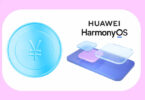Today the Convergence Alliance was unveiled. It aims to enable enterprises to unlock the value from the combination of AI, Big Data, blockchain and IoT. Jaguar Land Rover, SAP, and Deutsche Telekom’s T-Labs are founding members and Outlier Ventures is the initial curator of the Alliance. The Convergence Alliance has AI in its sights with the other technologies acting as enablers.
“It has become increasingly obvious to everyone [that] platform monopolies like Facebook, Google or Amazon lead to data monopolies, and they ultimately lead to AI monopolies,” said Jamie Burke, Outlier Ventures CEO. “The more data they get, the better their AI and the more dependent customers and users become.”
Burke believes that Facebook’s Libra is acting as a catalyst, like pouring gasoline on a fire. The initial focus of the Convergence Alliance leans more towards industrial sectors. So Libra isn’t a direct threat. But they see the writing on the wall.
From an industrial perspective, “what if Google or Amazon did a Libra?” asked Burke. “What would that mean to my industry? If all of a sudden, they became the identity layer and the payments layer to my industry. What would that do to my probably already increasing dependency upon their cloud AI solutions?” And Burke thinks there’s a good chance one of them could do something similar to Libra within the next 18 months.
He continued: “Especially in industries that are manufacturing things. There’s the real fear that they’re left making the “things” in the Internet of Things. And the software component where ultimately the value is going to lie is monopolized by a handful of Silicon Valley companies.”
The Convergence Alliance is inspired by Outlier’s Convergence Stack investment thesis which revolves around data. There’s a parallel with the internet which is known for the OSI stack. Wires and routers that connect the internet are at the bottom, the TCP/IP communication protocol is in the middle, and websites and applications are at the top. In the Convergence Stack, processing data, and distributed ledgers are near the bottom, and at the top are applications that consume data which will likely involve Artificial Intelligence.
A shared purpose
To move the Alliance forward, these and other enterprises will collaborate with academic institutions such as Imperial College London and Frankfurt School of Finance & Management. Plus the founding members include other initiatives such as Smart Dubai, the MOBI Foundation and the Fab City Global Initiative.
“The Convergence Alliance allows us to collaborate with peers from the industry, share knowledge and gain a comprehensive understanding of the opportunities arising from emerging technologies,” said Raimund Gross, SAP Innovation Manager. “This endeavour will help us identify new ways of enriching business processes and eventually create new business models in service of our customers.”
The Alliance positions itself as enabling the technologies to cross the chasm into industrial adoption. Blockchain, IoT and Big Data are really feeders for AI.
The target is to integrate 15 different protocols which span these technologies and convert them into commercial advantages for the enterprises. Most of these protocols have investments from Outlier Ventures. They include Sovrin (identity), Fetch.ai, Ocean Protocol (data), Haja Networks (data), Agoric (smart contracts) and SEED (AI marketplace).
But Outlier has also identified other “tracker” protocols which it sees as important and as a result has made more passive investments in tokens. Going forward, the Alliance’s focus is on best-in-class protocols, rather than those that are incubated by Outlier.
While Outlier is the initial Alliance curator, over time, it will increasingly be driven by the wider member group.
Keep it moving
Some enterprise blockchain organizations talk a lot, but not much happens. How can the Convergence Alliance avoid this?
“We deliberately selected organizations that we know are already actively deploying parts of the stack,” Burke told Ledger Insights. “So in many instances, we know from first hand that the C-level of that organization have prioritized these technologies as core to their business.”
There’s some self-selection of sectors that are interested in convergence. They are digitized so that they already have a “data problem”. “They have more data than they can store, process, or turn into any meaningful value,” commented Burke. “The heart of the convergence thesis is really about how these technologies combine to create a new data economy. And ultimately what do you need data for nowadays? You need it to feed into AI.”
There’s also a focus on particular types of applications. Those that are cross-industry, that need identity, and involve payments usually involving machines.
Distributed Ledger Technologies (DLT) allow data to be commoditized to create marketplaces. And the value will often be realized from AI. Hence the sectors which currently are a good fit include mobility, general industry 4.0 and smart cities.
Either Outlier or its investee companies have existing relationships with most of the founding organizations. One example of an existing collaboration is the Jaguar Land Rover IOTA-powered car wallet.
Another is Deutsche Telekom’s T-Labs and Fetch.AI which are working together to create autonomous economic agents.
The Alliance plans to participate in three sets of activities. The first is to peer review emerging standards rather than create new ones. These might include topics such as interoperability and privacy. Secondly, to help the ecosystem by communicating technical, commercial and funding needs. And finally, education. That won’t be about the basics, but about how to cross the chasm for the convergence stack.
Coming back to one of the drivers behind the Alliance, Burke said, “many industries are now considering the implications to their industry if Google or Amazon were to replicate the Libra model. And they don’t like the answer: that software eats their world.”






